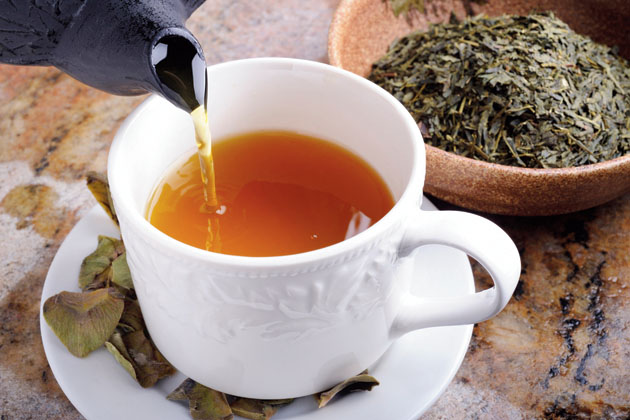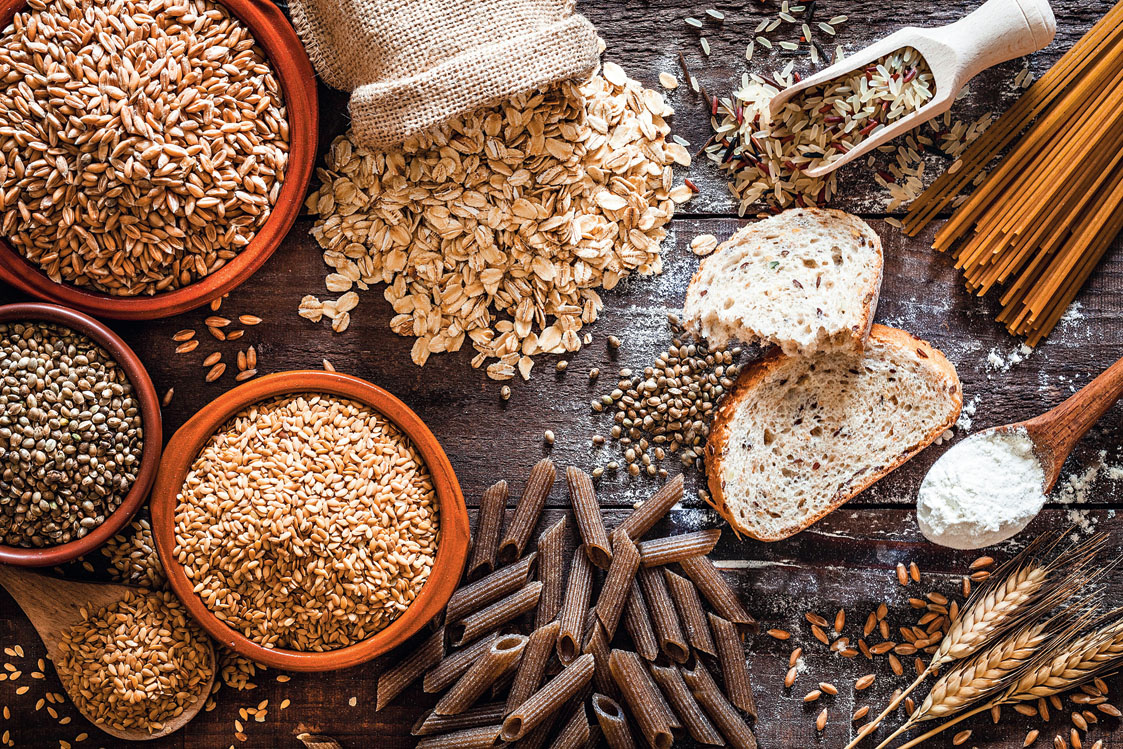We all know that so far there is no presence of a magic pill or potion to treat or cure Covid-19. However, we do know that a strong immune system may bail us out but at the same time, we cannot afford to ignore our respiratory health — primarily the lungs.
SARS-CoV-2 is a respiratory virus that aggressively attacks our lungs and can destroy it. We must do all we can to keep our lungs healthy to avoid the worst effects of the disease. Rarely do we think of our lungs. When we think of getting healthier, we normally think about our heart, brain or liver. Our pulmonary organ should be given its due importance. It’s time to act because if not now, we never will.
Lung care
If you want to breathe easy, you need to think about your lungs today. One’s lungs age with time and become less flexible and lose their strength, making breathing difficult. They need daily care and attention to keep them working optimally.

The antioxidants in green tea have an anti-inflammatory effect on the lungs Sourced by the Telegraph
Food for lungs
These foods can reduce inflammation in the lungs and the phytochemicals and antioxidants in them can slow down degenerative processes and early ageing. You can include the following in your diet — apples, apricots, basil, cherries, cloves, flaxseeds, fatty fish, ginger, garlic, green tea, mustard, olive, red cabbage, seaweed, tomatoes and walnuts.
Hydration
It is very important to drink plenty of fluids. It helps to keep mucus moving and also to keep it thin for comfortable removal. Aim to drink a minimum of six to eight glasses of fluids a day, primarily water.
You can also drink green tea. The antioxidants in green tea have an anti-inflammatory effect on the lungs. These compounds may even protect lung tissue from the damaging effects of smoke inhalation. It has also been reported that people who drink at least two cups of green tea per day have better lung function than those who don’t consume it.
Check your weight
Obese people tend to have respiratory symptoms even in the absence of lung diseases. They experience breathlessness on exertion; wheezing is also a common feature. They have poor lung function and suffer from low-grade inflammation as well. Excess weight plays a key role in development of obstructive sleep apnea. Asthma is also more common and difficult to treat in obese patients. COPD patients can have better outcomes with weight reduction. Those who are underweight, catch infections easily. Hence it is important to maintain normal body weight for better lung health.
Quit smoking
We all know smoking is bad for our health, especially the lungs. Each time you smoke a cigarette, you damage the lungs by inhaling numerous chemicals, including nicotine, carbon monoxide and tar, which are toxic. It increases mucus production, irritate and inflame tissues. Slowly your airways become narrower, making it difficult to breathe. It also accelerates degenerative changes and induces early ageing of the lungs. It may even cause cancer.
No matter how old you are or how long you’ve been a smoker, quitting is going to help you achieve better health. Vaping, e-cigarettes and hookah are also bad for the lungs. It can also lead to chronic inflammation of the airways. It has been reported, in a recent study published in The New England Journal of Medicine, that people who smoke were 2.4 times more likely to have severe symptoms from Covid-19 compared to those who did not smoke.
Exercise regularly
Regular exercising is critical for healthy lung function. Walking, running, swimming and cycling are the best workouts for the lungs. When you exercise, your heart beats faster and your lungs work harder. Your body needs more oxygen to fuel your muscles. Exercising makes the lungs step up its oxygen delivery while expelling extra carbon dioxide. Also, deep-breathing exercises strengthen your lung muscles; you can devote 10-15 minutes towards it daily.
Balance is key
Did you know that food can affect one’s breathing? The right combination of nutrients in your diet can help you breathe better and easier. Eat a balanced diet, which includes all food groups, such as carbohydrates, protein, fat and fibre.
Carbohydrates give your body energy for breathing and other bodily functions. It includes foods like potatoes, bread, rice, pasta, noodles and chapattis. Choose complex carbohydrates, such as wholegrain chapattis, rice, bread and pasta, fresh fruits and vegetables. Ensure that the carb you choose is high in fibre or wholegrain, such as wholewheat pasta, brown rice or wholemeal bread.
You also need strong chest muscles to breathe well. Muscles help your ribs to expand as you breathe. Protein keeps your muscles strong. Good choices include milk, eggs, cheese, meat, fish, poultry, nuts and dried beans or peas.
Eat a good source of protein at least twice a day to help maintain strong respiratory muscles. Vegetarians can include more beans and pulses to the diet.
Eggs are not only good source of protein, but also rich in zinc, vitamin A and D, which enhances your immunity. It helps to have two servings of fish per week, one of which is oily. Consume red meat to get iron, essential for the production of haemoglobin, which helps transport oxygen throughout the body. And avoid processed meat.
Oil provides fat and contains immune-boosting vitamins, such as A and E. Choose mono- and polyunsaturated fats, which do not contain cholesterol. These are fats that are often liquid at room temperature and come from plant sources, such as olive, mustard and rice bran. People with COPD can try a diet with fewer carbohydrates and more fat, which can make breathing less demanding and easy. Limit foods that contain trans fat and saturated fat, such as lard, ghee, cream and skin from meat, hydrogenated vegetable oils, and fried food.
Fibre in fruits and vegetables help maintain a healthy gut microbiota. This along with vitamins and minerals present in them can boost your immune system to help stave off chest infections. Include at least five portions of different colours and variety of fruits and vegetables every day.

You can include the following in your diet — apples, apricots, basil, cherries, cloves, flaxseeds, fatty fish, ginger, garlic, green tea, mustard, olive, red cabbage, seaweed, tomatoes and walnuts. Sourced by the Telegraph
Pesky pollutants
Exposure to pollutants can damage the lungs and accelerate ageing. We cannot completely control outdoor pollution but we can certainly minimise our exposure to indoor pollutants. Here are some tips for decreasing indoor pollutants:
- Don’t allow anyone to smoke at home.
- Keep windows open for at least two-three hours each day to increase indoor air ventilation.
- Avoid synthetic air fresheners and candles that contain chemicals like formaldehyde and benzene.
- Some mosquito repellents contain toxic chemicals, causing breathing problems, cough, cold, bronchial irritation and allergies. People can even develop asthma after using repellents regularly. You can use essential oils, such citronella or neem-based sprays instead.
- Mould, dust, and pet dander can all get into one’s lungs and cause irritation.
- Use natural cleaning products when possible, and open a window when using products that create fumes.
Hena Nafis is a consultant nutritionist and the owner of nutrition and lifestyle clinic Nutrience, and the health cafe, Eat Good Food. You can follower her on Facebook and Instagram @officialhenanafis










